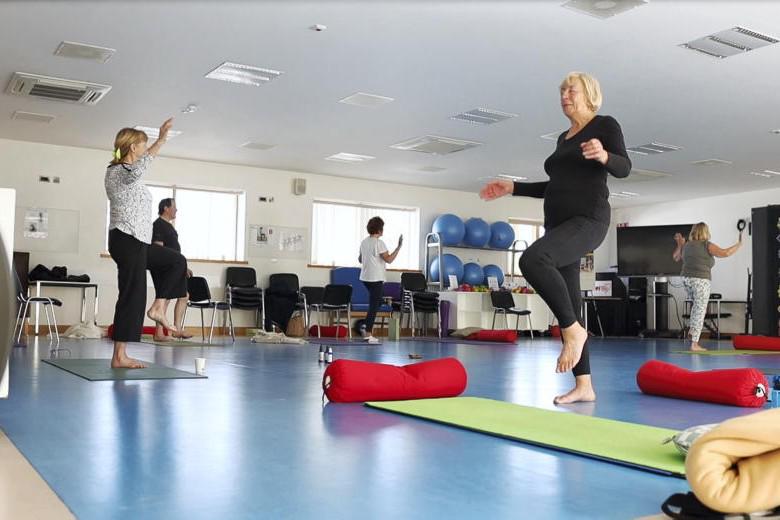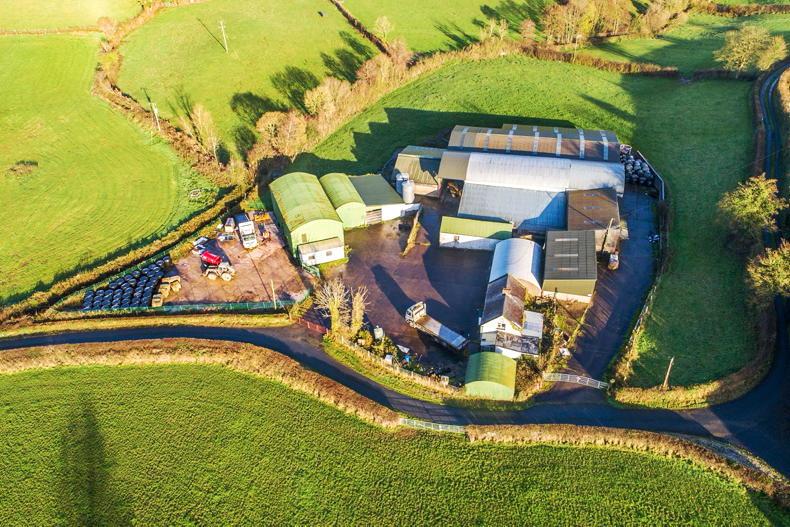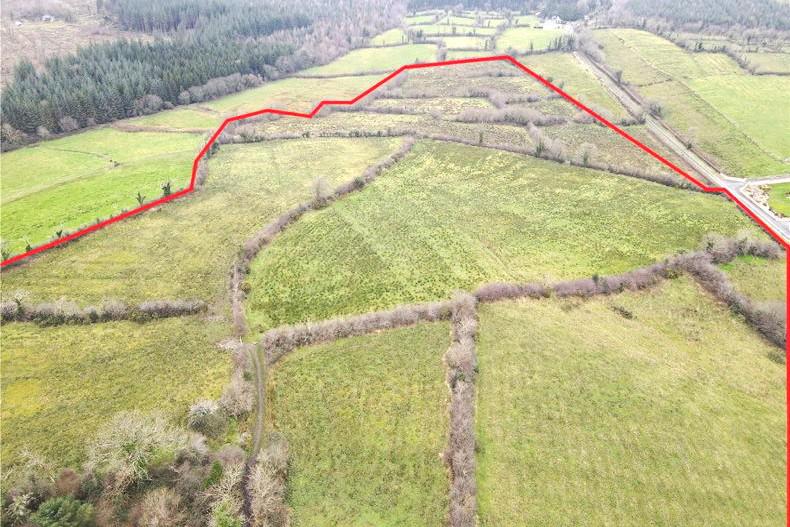Plasma, often referred to as ‘liquid gold’ in medical circles, is a crucial component of human blood that plays a vital role in our health and wellbeing. And ‘liquid gold’ is exactly how Jo Lawlor, the national apheresis recruitment manager with the Irish Blood Transfusion Service (IBTS), describes blood platelets.
“That’s why we are looking for platelet donors all the time. Currently, we have 2,215 amazing donors on the panel but we are striving to have 3,000 donors,” says Jo.
As many as 24,000 doses of platelets are required each year. Most people are aware of the need to donate blood but not as many realise the importance of donating platelets.
“Platelets are used in the treatment of cancer, bone marrow transplants, burns victims and new born babies with low platelet counts,” she says.
“We have a quotation on the wall in the donation clinic that reads: ‘To the world you may be one person but to one person you may be the world’.
“When a donor is donating platelets and they read those words it must be unbelievable, that feeling of ‘I could be saving someone’s life today’.
“We realise many people donate blood, but I would like to remind people about platelet donation and ask them to become a donor.
“It just takes an hour or so at a time that suits you, and donors often tell me how good they feel afterwards, knowing that they’ve done something great.”
The IBTS asks suitable candidates to donate five or six times a year but it is possible to donate every 28 days.
There are two platelet donation centres in Ireland, one in the grounds of St James’ Hospital, Dublin and the other in the grounds of St Finbarr’s Hospital, Douglas in Cork. Both centres have car parking and the Dublin centre is near the red Luas line.
“One of our donors, Richard (featured right) finds the rainy day suits him to come to Dublin. Some donors come in early before work or at lunchtime, or in the evening. We are open every bank holiday Monday as well to make it convenient for people.”
So what’s involved in the assessment for platelet donation?
“The assessment takes about 45 minutes,” she says. “We are looking for one good vein in a person’s arm because we will be drawing blood and returning blood back into the same vein.”
The person’s medical history is discussed and a full blood count is done to detect the their platelet level.
“If you are then deemed suitable you will become part of this special platelet panel. ”
While donors are encouraged to donate regularly, the IBTS may contact them if there is a shortage of a particular blood group.
“Demand is driven by patients’ needs and we need every blood group every day because of the seven-day shelf life of platelets, so we sometimes call donors with particular blood groups.”
Overall, Jo sums up the importance of platelet donation.
“Donating platelets means that someone will live or have longer to live because of what you’ve done.”
Case study:
Farmer Richard Lynch
Richard Lynch, a farmer and contractor from Ardee, Co Louth, has given 123 platelet donations so far. Coming from a home where his family donated blood regularly, he began donating at the age of 18.
“I made a point to try and give it [blood] as much as I could because we always understood that it was a good thing to do. I was well aware that if I needed oil for my car I could buy that in shops, but if blood is needed for people it’s a different story so donating, if you can, is important.”
His journey with platelet donation began on an occasion when he was actually donating blood.
“Staff asked me if I would consider platelet donation. I had never heard of it, but I said no after reading the leaflet as it would involve a trip to Dublin every month.
Seeing that little boy back in 2022 in need of platelets made me realise the importance of it. The best news is that little Harry is doing well
“I did ring the number in Dublin and they explained a bit more about what was involved to me but I still said I’m self-employed, on my own on the farm and this would be a bit of a trek.”
Things changed, however, when he came across a young boy named Harry (3), during his contracting work where he travels from farm to the farm with a mobile mill to roll barley for use as feed.
“Harry had leukaemia and needed platelets and I thought that child has his whole life in front of him, if only he got a chance or break in life, so that’s where my story with platelets really starts. I rang the National Blood Centre and went for assessment soon after that.”
Procedure
The (apheresis) procedure is a bit different to blood donation, he explains.
“Blood donation involves a single needle procedure and blood is collected into a blood bag, whereas with platelet donation the blood is drawn into a special cell separator, the platelets are extracted and the remainder of the blood is returned through the same needle to the donor. It takes about an hour, with blood pressure and blood tests beforehand to check the level of platelets.”
Richard is passionate about increasing awareness about blood and platelet donation and always encourages family and friends to do so.
“I see young people out there who may not be aware of the importance of giving blood and platelets. People need to know more and that it’s no big deal to donate.
"Last harvest when I got the call to say that someone of my blood type needed platelets, I was able to go in at 8am and get back to cut corn after that, so you can work it into your day.
“My blood group is A+ which 26% of the Irish population have.”
Richard has a good breakfast before he goes and a snack on arrival. He feels fine driving home and working that day.
“Seeing that little boy back in 2022 in need of platelets made me realise the importance of it. The best news is that little Harry is doing well. I’d ask people to think that some day your own family might be affected [by illness] so I encourage everyone over 18 who can, to start donating.
“I hope to donate for as long as I can, and when it comes to the day when I can’t, I will look back and say I did my bit for society.”
in Short
Apheresis [a-pher-e-sis] refers to the medical procedure involved in extracting platelets from blood.Platelets are the small cells present in your blood that enable it to clot properly and heal wounds. Having enough platelets, particularly when you are going through surgery, is vital.Each apheresis donation can provide two or three life-saving adult doses. Platelets have a shelf life of seven days while blood has a shelf life of 35 days. It is possible to donate platelets every 28 days, but even donating five to six times a year at a day and time that suits them makes a huge difference. Women who have had a pregnancy of any gestation cannot donate platelets. This is because a mother’s immune system may react to her baby’s blood.Please visit giveblood.ie for an eligibility quiz to check if you are suitable to donate platelets.Donors are not paid for platelet donations. For stories of how platelets have saved lives, visit giveblood.ie/platelets.Call Dublin Platelet Clinic – 01 4322833.Call Cork Platelet Clinic – 021 4807429. Read more
Healthbytes to keep you in the picture
50 and fab: enjoy a full and fit life
Plasma, often referred to as ‘liquid gold’ in medical circles, is a crucial component of human blood that plays a vital role in our health and wellbeing. And ‘liquid gold’ is exactly how Jo Lawlor, the national apheresis recruitment manager with the Irish Blood Transfusion Service (IBTS), describes blood platelets.
“That’s why we are looking for platelet donors all the time. Currently, we have 2,215 amazing donors on the panel but we are striving to have 3,000 donors,” says Jo.
As many as 24,000 doses of platelets are required each year. Most people are aware of the need to donate blood but not as many realise the importance of donating platelets.
“Platelets are used in the treatment of cancer, bone marrow transplants, burns victims and new born babies with low platelet counts,” she says.
“We have a quotation on the wall in the donation clinic that reads: ‘To the world you may be one person but to one person you may be the world’.
“When a donor is donating platelets and they read those words it must be unbelievable, that feeling of ‘I could be saving someone’s life today’.
“We realise many people donate blood, but I would like to remind people about platelet donation and ask them to become a donor.
“It just takes an hour or so at a time that suits you, and donors often tell me how good they feel afterwards, knowing that they’ve done something great.”
The IBTS asks suitable candidates to donate five or six times a year but it is possible to donate every 28 days.
There are two platelet donation centres in Ireland, one in the grounds of St James’ Hospital, Dublin and the other in the grounds of St Finbarr’s Hospital, Douglas in Cork. Both centres have car parking and the Dublin centre is near the red Luas line.
“One of our donors, Richard (featured right) finds the rainy day suits him to come to Dublin. Some donors come in early before work or at lunchtime, or in the evening. We are open every bank holiday Monday as well to make it convenient for people.”
So what’s involved in the assessment for platelet donation?
“The assessment takes about 45 minutes,” she says. “We are looking for one good vein in a person’s arm because we will be drawing blood and returning blood back into the same vein.”
The person’s medical history is discussed and a full blood count is done to detect the their platelet level.
“If you are then deemed suitable you will become part of this special platelet panel. ”
While donors are encouraged to donate regularly, the IBTS may contact them if there is a shortage of a particular blood group.
“Demand is driven by patients’ needs and we need every blood group every day because of the seven-day shelf life of platelets, so we sometimes call donors with particular blood groups.”
Overall, Jo sums up the importance of platelet donation.
“Donating platelets means that someone will live or have longer to live because of what you’ve done.”
Case study:
Farmer Richard Lynch
Richard Lynch, a farmer and contractor from Ardee, Co Louth, has given 123 platelet donations so far. Coming from a home where his family donated blood regularly, he began donating at the age of 18.
“I made a point to try and give it [blood] as much as I could because we always understood that it was a good thing to do. I was well aware that if I needed oil for my car I could buy that in shops, but if blood is needed for people it’s a different story so donating, if you can, is important.”
His journey with platelet donation began on an occasion when he was actually donating blood.
“Staff asked me if I would consider platelet donation. I had never heard of it, but I said no after reading the leaflet as it would involve a trip to Dublin every month.
Seeing that little boy back in 2022 in need of platelets made me realise the importance of it. The best news is that little Harry is doing well
“I did ring the number in Dublin and they explained a bit more about what was involved to me but I still said I’m self-employed, on my own on the farm and this would be a bit of a trek.”
Things changed, however, when he came across a young boy named Harry (3), during his contracting work where he travels from farm to the farm with a mobile mill to roll barley for use as feed.
“Harry had leukaemia and needed platelets and I thought that child has his whole life in front of him, if only he got a chance or break in life, so that’s where my story with platelets really starts. I rang the National Blood Centre and went for assessment soon after that.”
Procedure
The (apheresis) procedure is a bit different to blood donation, he explains.
“Blood donation involves a single needle procedure and blood is collected into a blood bag, whereas with platelet donation the blood is drawn into a special cell separator, the platelets are extracted and the remainder of the blood is returned through the same needle to the donor. It takes about an hour, with blood pressure and blood tests beforehand to check the level of platelets.”
Richard is passionate about increasing awareness about blood and platelet donation and always encourages family and friends to do so.
“I see young people out there who may not be aware of the importance of giving blood and platelets. People need to know more and that it’s no big deal to donate.
"Last harvest when I got the call to say that someone of my blood type needed platelets, I was able to go in at 8am and get back to cut corn after that, so you can work it into your day.
“My blood group is A+ which 26% of the Irish population have.”
Richard has a good breakfast before he goes and a snack on arrival. He feels fine driving home and working that day.
“Seeing that little boy back in 2022 in need of platelets made me realise the importance of it. The best news is that little Harry is doing well. I’d ask people to think that some day your own family might be affected [by illness] so I encourage everyone over 18 who can, to start donating.
“I hope to donate for as long as I can, and when it comes to the day when I can’t, I will look back and say I did my bit for society.”
in Short
Apheresis [a-pher-e-sis] refers to the medical procedure involved in extracting platelets from blood.Platelets are the small cells present in your blood that enable it to clot properly and heal wounds. Having enough platelets, particularly when you are going through surgery, is vital.Each apheresis donation can provide two or three life-saving adult doses. Platelets have a shelf life of seven days while blood has a shelf life of 35 days. It is possible to donate platelets every 28 days, but even donating five to six times a year at a day and time that suits them makes a huge difference. Women who have had a pregnancy of any gestation cannot donate platelets. This is because a mother’s immune system may react to her baby’s blood.Please visit giveblood.ie for an eligibility quiz to check if you are suitable to donate platelets.Donors are not paid for platelet donations. For stories of how platelets have saved lives, visit giveblood.ie/platelets.Call Dublin Platelet Clinic – 01 4322833.Call Cork Platelet Clinic – 021 4807429. Read more
Healthbytes to keep you in the picture
50 and fab: enjoy a full and fit life









SHARING OPTIONS